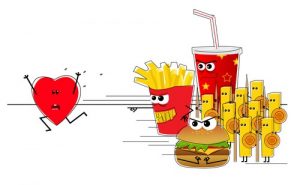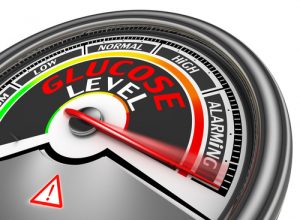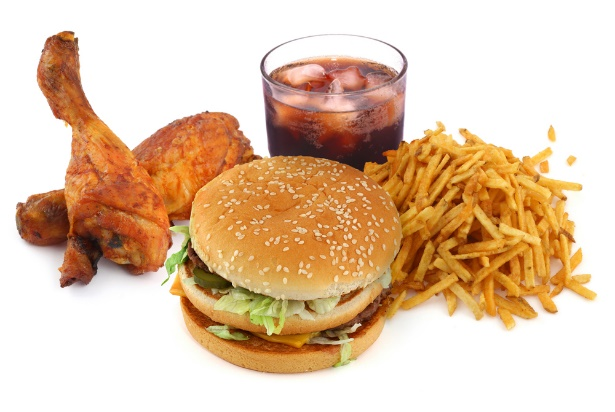Why Do We Keep Eating Processed Foods?
 Unless you are Rip Van Winkle and have been asleep for the past 20 years you probably know that the highly processed foods in the typical American diet are bad for your health. But perhaps you didn’t realize just how bad they were.
Unless you are Rip Van Winkle and have been asleep for the past 20 years you probably know that the highly processed foods in the typical American diet are bad for your health. But perhaps you didn’t realize just how bad they were.
But first, let’s start with a bit of perspective. Scientists like to be precise. Even healthy foods go through some processing.
- The oatmeal you ate this morning was either steel-cut or ground. That is processing.
- The almond butter you put on your whole grain toast this morning was made by roasting and grinding. That is processing.
So, scientists have developed the term “ultra-processed food” to describe the worst of the worse. In short, ultra-processed foods:
- Usually go through several physical and chemical processes, such as extruding, molding, prefrying, and hydrogenation that can lead to the formation of toxic contaminants. One example you may have heard about recently would be acrylamide in French fries.
- Typically contain ingredients of no or little nutritive value, such as refined sugar, hydrogenated oils, emulsifiers, artificial sweeteners, thickening agents, and artificial colors. Some of these ingredients have been linked to cancer, heart disease, and premature death.
- Have long shelf-lives because of added preservatives. This allows migration of chemicals such as bisphenol A from the packaging materials into the food.
Examples of ultra-processed foods include:
- Sodas
- Chips
- Candy and packages of cookies or crackers
- Most breakfast cereals
- Boxed cake, cookie, and pancake mix
- Chicken nuggets and fish sticks
- Fast food burgers
- Hot dogs and other processed meats
- Infant formula
- Instant noodles
- Most store-bought ice cream
- Flavored yogurt
In short, ultra-processed foods include sodas and the junk and convenience foods Americans hold so dear. Even things like infant formula and flavored yogurt make the list.
Evidence of the ill effects of ultra-processed foods on our health is becoming overwhelming. In previous issues of “Health Tips From the Professor” I have shared recent studies that have shown that heavy consumption of ultra-processed foods is linked to increased risk of obesity and cancer. Other studies have linked ultra-processed food consumption with increased risk of depression, heart disease, and premature death.
In this issue of “Health Tips From the Professor” I:
- Describe a recent study ( B Srour et al, JAMA Internal Medicine, 180: 283-291, 2020) documenting the effect of ultra-processed food consumption on the risk of developing type 2 diabetes.
- Ask the important question, “If we know these foods are so bad for us, why do we still keep eating them?”
How Was The Study Done?
 The data from this study were taken from an ongoing study in France (the NutriNet-Sante study) looking at associations between nutrition and health. This study began enrolling French adults 18 and older in 2009.
The data from this study were taken from an ongoing study in France (the NutriNet-Sante study) looking at associations between nutrition and health. This study began enrolling French adults 18 and older in 2009.
This is a web-based study. Participants are prompted to go to a dedicated website and fill out questionnaires related to things like sex, age, height, weight, smoking status, physical activity, health status, and diet.
With respect to diet, participants filled out a series of 3 nonconsecutive 24-hour dietary records at the time of enrollment and every 6 months. This is a particularly strong feature of this study. Many studies of this type only analyze participant’s diets at the beginning of the study. Those studies have no way of knowing how the participant’s diets may have changed during the study.
Diagnosis of type 2 diabetes for study participants was obtained from the French centralized health records.
The study enrolled 104,708 participants, 20% men and 80% women, and followed them for an average of 6 years. The average age of the participants was 43 years.
Do Processed Foods Increase Your Risk Of Diabetes?
 In this study the range of ultra-processed foods in the French diet ranged from 7% to 27% (average = 17%). High intake of ultra-processed foods was associated with:
In this study the range of ultra-processed foods in the French diet ranged from 7% to 27% (average = 17%). High intake of ultra-processed foods was associated with:
- Younger participants. Simply put, young people were more likely to drink sodas and eat junk food than older adults.
- Increased caloric intake. Ultra-processed foods have a higher caloric density than whole, unprocessed foods.
- No surprise here. Previous studies have shown that ultra-processed food consumption increases the risk of obesity.
- Poorer diet quality. Again, no surprise. Junk foods tend to crowd healthier foods out of the dirt. Specifically, ultra-processed food consumption was associated with:
-
- Higher intake of sugar and salt.
-
- Lower intake of fiber.
-
- Higher intake of sugary drinks, red and processed meats.
-
- Lower intake of whole grains, yogurt, nuts, fruits, and vegetables.
However, even after statistically correcting for all these factors, there was a significant association between ultra-processed food consumption and the onset of type 2 diabetes in the 6-year follow-up period.
- There was a linear relation between ultra-processed food consumption and the development of type 2 diabetes. Simply put, the more ultra-processed food the participants consumed the more likely they were to be diagnosed with type 2 diabetes.
- There was a 15% increased risk of developing type 2 diabetes for every 10% increase in ultra-processed food consumption.
The authors concluded:
“In this large observational prospective study, a higher proportion of ultra-processed food in the diet was associated with a higher risk of type 2 diabetes. Even though these results need to be confirmed in other populations and settings, they provide evidence to support efforts by public health authorities to recommend limiting ultra-processed food consumption.”
What Does This Study Mean For You?
 You might be tempted to say that a 15% increase in the risk of developing diabetes is a small price to pay for continuing to eat the foods you enjoy. However, you should be alarmed by this study. Here is why.
You might be tempted to say that a 15% increase in the risk of developing diabetes is a small price to pay for continuing to eat the foods you enjoy. However, you should be alarmed by this study. Here is why.
The French diet is much healthier than the American. Remember that ultra-processed foods only comprised 17% of the French Diet. In contrast, a recent survey found that:
- Ultra-processed foods make up 58% of the average American’s diet.
- Ultra-processed foods account for 90% of the added sugar in our diet.
It is no wonder that obesity and diabetes are reaching epidemic proportions in our country.
You might also be tempted to think that you can just take some medications and live with type 2 diabetes. However, you should think of type 2 diabetes as a gateway disease. It increases your risk of heart disease, high blood pressure, Alzheimer’s disease, kidney damage, and neuropathy, just to name a few. These are diseases that make your life miserable and ultimately kill you.
More importantly, type 2 diabetes is completely reversible if you catch it early enough. Just lose some weight, exercise more, give up the ultra-processed foods, and eat a healthy diet. I recommend a whole food, primarily plant-based diet.
Why Do We Keep Eating Processed Foods?
 We all know that ultra-processed foods are bad for us. Study after study show that they make us sick. They kill us prematurely. And, unlike most topics in the field of nutrition, this is not controversial.
We all know that ultra-processed foods are bad for us. Study after study show that they make us sick. They kill us prematurely. And, unlike most topics in the field of nutrition, this is not controversial.
For example, there have been lots of bizarre diets that have come and gone over the years. There have been books written on “The Steak Lover’s Diet” and “The Drinking Man’s Diet”. But nobody has written a book on “The Junk Food Lover’s Diet”. It simply would not be believable.
So why do we Americans keep eating such unhealthy foods. Part of the answer is physiological. A preference for sweet, salty, and fatty foods is hardwired into our brain. That’s because they had great survival value in prehistoric times.
If we think back to the time when we were hunters and gatherers:
- Fruits are healthy foods. They are a great source of antioxidants, phytonutrients, and fiber, but there were no orchards or grocery stores back then. We had to search for fruits in the wild. Our desire for sweet tasting foods provided the motivation to seek them out.
- Game was seasonal and sometimes scarce. We had to be prepared to go for days or weeks without eating except for the leaves and roots we could gather. Our bodies are designed to store fat as the primary energy source to get us through the lean times. Our preference for fatty foods encouraged us to store as much fat as possible in times of plenty so we would be prepared for times of scarcity.
- If we fast forward to our early recorded history, salt was scarce. It was worth its weight in gold. Yet some salt is essential for life. Our preference for salty foods encouraged us to search out supplies of salt.
Unfortunately, the food industry has weaponized these food preferences to create the ultra-processed foods we know today. Their ads entice us by associating these foods with youth and good times. And ultra-processed foods have become ubiquitous. There are fast food restaurants on almost every street corner and shopping mall in the country.
Fortunately, we do not have to let the food industry destroy our health. We can retrain our taste buds to appreciate the sweetness of fresh fruits and vegetables. We can substitute healthy fats for the kinds of fat found in most ultra-processed foods. We can also retrain our taste buds to appreciate herbs and spices with just a pinch of salt.
The Bottom Line
Ultra-processed foods, such as sodas, junk foods, and convenience foods have become the biggest food group in the American diet. A recent study found:
- Ultra-processed foods make up 58% of the average American’s diet.
- Ultra-processed foods account for 90% of the added sugar in our diet.
That is scary because ultra-processed foods are deadly. Previous studies have shown that consumption of ultra-processed foods is linked to obesity, heart disease, cancer, and Alzheimer’s disease.
The study discussed this week looked at the association between ultra-processed food consumption and type 2 diabetes. It showed:
- There was a linear relation between ultra-processed food consumption and the development of type 2 diabetes. Simply put, the more ultra-processed food the participants consumed the more likely they were to be diagnosed with type 2 diabetes.
- There was a 15% increased risk of developing type 2 diabetes for every 10% increase in ultra-processed food consumption.
You might be tempted to think that you can just take some medications and live with type 2 diabetes. However, you should think of type 2 diabetes as a gateway disease. It increases your risk of heart disease, high blood pressure, Alzheimer’s disease, kidney damage, and neuropathy, just to name a few. This are diseases that make your life miserable and ultimately kill you.
More importantly, type 2 diabetes is completely reversible if you catch it early enough. Just lose some weight, exercise more, give up the ultra-processed foods, and eat a healthy diet. I recommend a whole food, primarily plant-based diet.
For more details and a discussion of why Americans continue to eat ultra-processed food even though we know it is bad for us, read the article above.
These statements have not been evaluated by the Food and Drug Administration. This information is not intended to diagnose, treat, cure, or prevent any disease.
